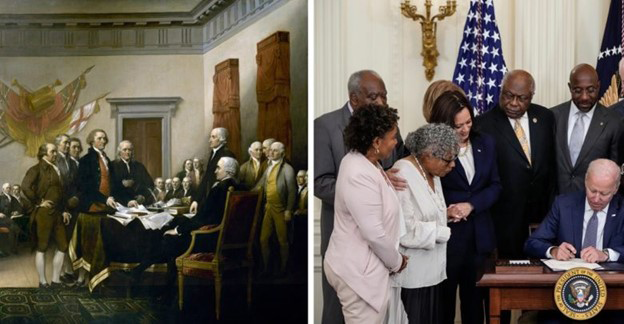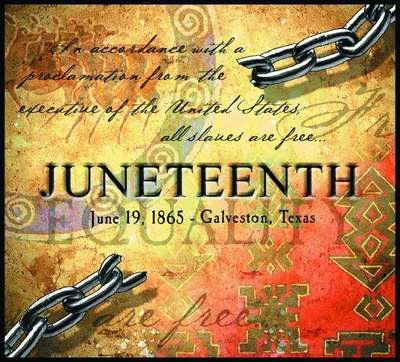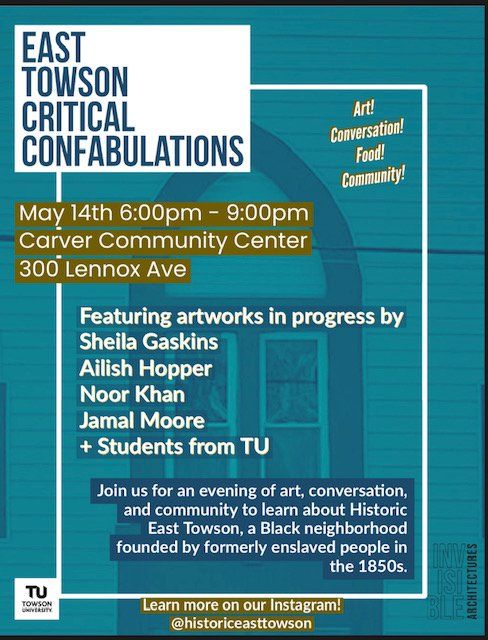The Complex Relationship between Juneteenth and the Fourth of July
Wait...two back-to-back paid federal Independence Day holidays?

Officially, we call one “Independence Day” and the other “Juneteenth National Independence Day.” America has celebrated the former for 246 years, enjoying ‘paid federal holiday’ status for 81 years; the latter, celebrated by some for as much as 157 years, yet only gaining the same ‘paid’ status last year. With the two holidays hitting America’s conscience within three weeks of each other, some folks need a refresher on “why?”
In a nutshell, the two holidays – like the two victorious wars they celebrate – view “freedom” vastly differently: July 4th is about American freedom from British rule; Juneteenth is about individual freedom from American rule.
On July 2nd (not the fourth), 1776, the Declaration of Independence declared freedom for American colonists – no longer as subjects and subordinates to the Monarch of Britain, King George III, thereby creating America, thirteen united, free, and independent States empowered to govern themselves.
The Revolutionary War that followed also brought freedom to tens of thousands of Africans held in America as slaves, not because of the Declaration, but despite it: King George III issued emancipation proclamations to Africans in America by offering freedom to those siding with Britain. In response, American “patriots” viewed the thousands of Black people accepting King George’s offer as “insurrectionists.” Seven years later in 1783 when the warring nations signed the Treaty of Paris to officially end the War, America demanded Britain return those emancipated Africans. Sadly, after years of litigation thousands were returned and re-enslaved. And despite ratification of the U.S. Constitution five years later in 1788, African enslavement remained constitutional in America for the next 75 years.
Throughout the Civil War, African emancipation happened as distinct areas of the Confederate
South fell to the Union Army. The war ended on May 9, 1865, but not until Union Army troops entered Texas on June 19, 1865, forcing it to abide President Lincoln’s Emancipation Proclamation of two years earlier, did the remaining Africans in the Confederate South enjoy freedom from slavery. Upon ratification of the 13th Amendment to the U.S. Constitution 6 months later, December 6, 1865, America’s last African slaves, still owned in the “non-aligned” strategic Border States of Delaware and Kentucky, were finally set free, as Americans.
Debating whether Juneteenth is the right day to celebrate the final removal of lawful slavery I leave to others, but surely it is A Day deserving of America’s recognition. So yes, two paid Independence Day holidays exist, and both for good reasons. And while our shared values are best expressed with reverence to both holidays, the Constitution forced upon the defeated South, and not the one ratified by the Founding Fathers, better expresses what my African ancestors and I pray will continue as America’s truest values.
Free Agent | Technologist | Ethics, Law, & Policy Expert | Social Intrapreneur.
This project was funded through the NeighborSpace Portals for Our Partners Program and the United Way of Central Maryland
MENU
GET IN TOUCH
STAY CONNECTED
Sign up for our newsletter and find out more
Contact Us
Thank you for joining our community. We will protect and respect your information per our privacy policy.
Please try again later






